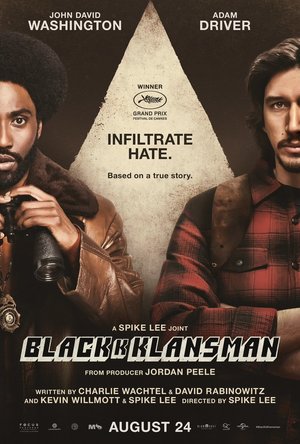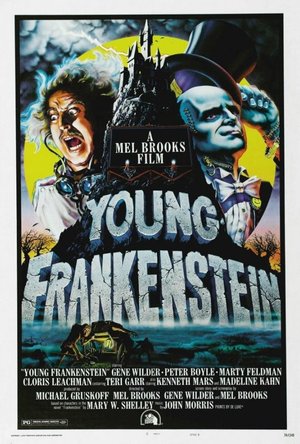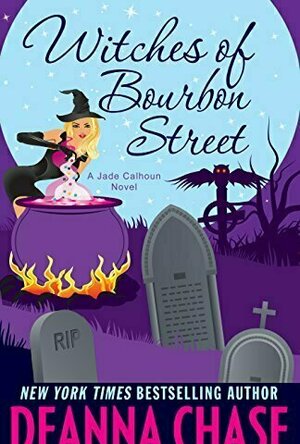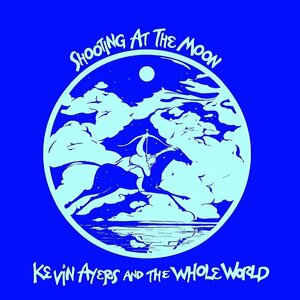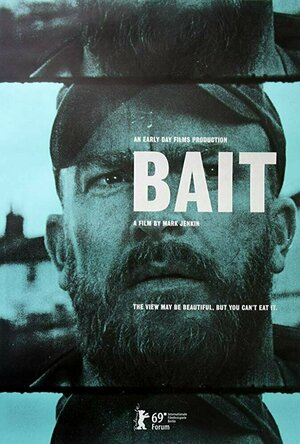Gareth von Kallenbach (980 KP) rated BlacKkKlansman (2018) in Movies
Jul 8, 2019
The film is very creative in the way that it presents history and allows the audience ride along with the action, suspense, and anxiety experience by Washington and Driver’s characters. The tone of the film, at times, is lighthearted in its approach but quickly draws you back in when faced with the reality that David Duke, and people like him walk among us dressing up their racism with non-threatening slogans, professional attire, and a clean-cut package.
The story displayed is a reminder that racism in America has a long history and is not isolated geographically to the south nor limited to Charlottesville or Charleston. The attitudes and actions committed by those who agree with the stances of white supremacy and white supremacist organizations have had a drastic impact on the development of American society. It has shaped and misshapen our attitudes towards one another. It continues to affect us today as we all bear witness to unbridled racism or the downplaying of racism with terms like “political correctness.” This film is timely in its approach and offers audiences a more full and expansive view of what combatting racism and racist attitudes and actions looks like.
Blackkklansman is a film that many have waited for when first hearing about the story of Ron Stallworth and they will not be disappointed with what they witness on screen. Sadly, the people who desperately need to see this movie may pass on it because they are uncomfortable with the subject matter and the reality that they themselves may be complicit in the continuance of racism and white supremacy. This film feels like a conversation being conducted directly between the director and audience. There are subtleties that allow the audience to think about the meaning and even parallel between the early 1970s and the current political environment, as well as, moments where there is no hiding of the message, no metaphor, no allegory. The filmmakers make it clear for those watching that many of us need to wake up almost as blatantly as Spike Lee promotes one of his earlier films, School Daze.
The only problem I found with the film was that I was left wanting more discussion. I wanted to see more of what Ron Stallworth dealt with as the only black detective in his department. If anything, this shows a real strength in the film by leaving audiences emotionally connected with the horrors that he faced, as well as, the way that those around him come to grips with the reality of the hatred and racial violence that had overlooked before because it did not have a direct effect on them. Blackkklansman is a film that will have audiences reflecting long after the credits have rolled. Hopefully the themes, metaphors, and overall message will help foster overdue and well-needed conversations about race, racism, prejudice, and violence. This film takes audiences out of their comfort zones and forces them to face some of the dark corners of America for two hours. Within that two hours, hopefully the people who don’t recognize racism and bigotry get a glimpse of the true horror and fear that marginalized communities feel on a daily basis so that they themselves can be agents of change and fight against racism.
Luke (12 KP) rated Young Frankenstein (1974) in Movies
Oct 2, 2017
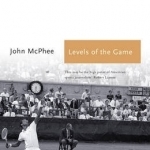
Levels of the Game
John McPhee and William Fiennes
Book
Described by Robert Lipsyte as 'the high point of American sports journalism', John McPhee's Levels...

Pimp My Text PRO - Send Color Text Messages with Emoji 2
Social Networking and Lifestyle
App
SEND COLOR TEXT MESSAGES! Stop sending boring black/white texts! ABOUT THE PRO VERSION + 36 NEW...
A Final Grain of Truth
Book
This is the final instalment of revered journalist Jack Webster's highly acclaimed autobiography,...
Lyndsey Gollogly (2893 KP) rated Witches of Bourbon Street (Jade Calhoun #2) in Books
Jul 21, 2020
Kindle
Witches of Bourbon street ( Jade Calhoun book 2)
By Deanna Chase
Jade Calhoun was never fond of her empath abilities. Now she’s discovered she has another gift she’d rather not unwrap—magic. But when her mentor, Bea, becomes gravely ill and insists Jade’s the only one who can help, she’s forced to embrace her witchy side.
It’s too bad she spent a decade shunning the magical community and never learned to harness her powers. Because time’s run out. A trapped spirit has revealed a clue to Jade’s long-lost mother. The resident angel has gone rogue and disappeared with Jade’s boyfriend, Kane. And if that wasn’t enough, her ex appears to be possessed.
To save any of them, Jade will need to find a way to control her inner white witch—without succumbing to black magic. Otherwise, she’ll lose everything…including her soul.
I think this series is brigand I love the author! I’ve always loved New Orleans and I’d just love to visit and reading good books like this makes me want to go more. We follow Jade facing yet more personal demons quite literally and she finally gets a few answers to others behaviour. Definitely recommended
Graham Lewis recommended Shooting At The Moon by Kevin Ayers in Music (curated)
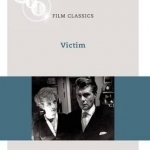
Victim
Book
?Victim (1961) was a landmark in the history both of the cinema and of British society. This modest...
